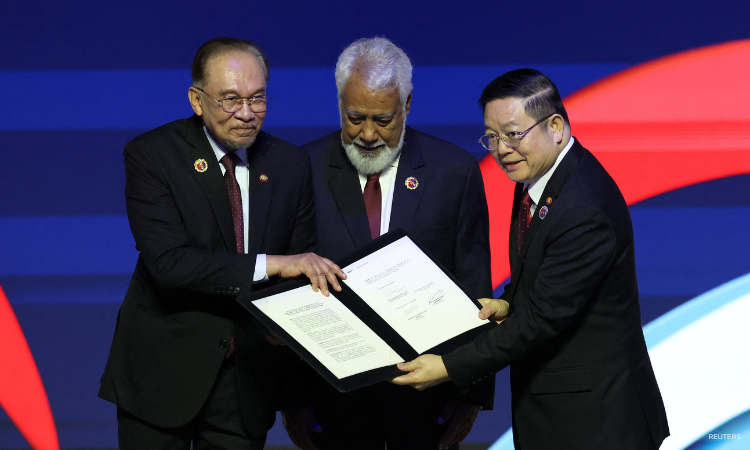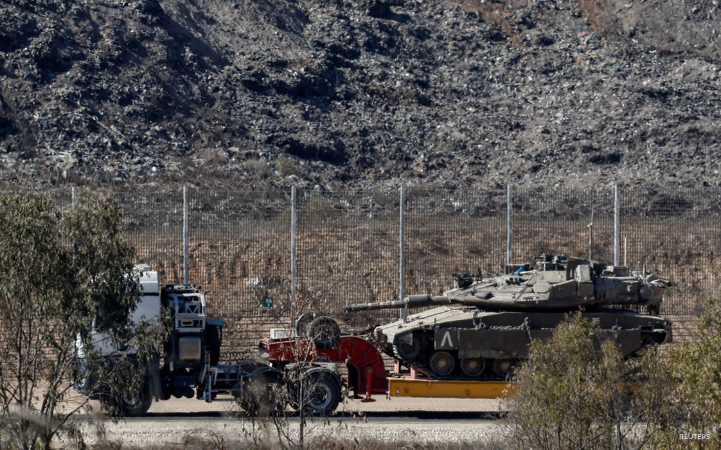Timor-Leste, Asia's youngest nation, becomes ASEAN's 11th member
Kuala Lumpur, Malaysia - Asia's youngest nation Timor-Leste on Sunday, Oct. 26, became the 11th member of the Southeast Asian bloc ASEAN, fulfilling a vision set out by its current president nearly a half-century ago while under Portuguese rule.
The country of 1.4 million people is among Asia's poorest and hopes to see gains from integrating its fledgling economy, which at about $2 billion represents only a tiny fraction of ASEAN's collective $3.8 trillion gross domestic product.
Timor-Leste's accession to the Association of Southeast Asian Nations follows a 14-year wait and though its membership is not expected to be transformative, it represents a symbolic victory for its President Jose Ramos-Horta and Prime Minister Xanana Gusmao, the heroes of its struggle for independence.
Its joining was formalized by ASEAN leaders at the opening of their annual summit in Kuala Lumpur on Sunday, where applause rang out as Timor-Leste's flag was placed on the stage.
New beginning with 'immense opportunities'
An emotional Gusmao said it was a historic moment for his country, with a new beginning that would bring "immense opportunities" for trade and investment.
"For the people of Timor-Leste, this is not only a dream realised, but a powerful affirmation of our journey," Gusmao said in a speech.
"Our accession is a testament to the spirit of our people, a young democracy, born from our struggle," he said, adding, "This is not the end of a journey."
Timor-Leste was ruled for three centuries by Portugal, which abruptly pulled out of its colony in 1975, paving the way for annexation and an at-times bloody occupation by giant neighbour Indonesia before it won full independence in 2002.
Ramos-Horta, 75, who was awarded the Nobel Peace Prize in 1996, had raised the idea of Timor-Leste joining ASEAN back in the 1970s, to secure his country's future through regional integration.
In an interview with CNA in September, Ramos-Horta said Timor-Leste must maintain stability and not burden ASEAN, adding it could contribute with its own experiences of conflict, including for disputes over borders and the South China Sea.
"If we can in the future contribute towards strengthening ASEAN mechanisms such as conflict mechanisms, that is key, in each country in ASEAN, we put emphasis on dialogue," Ramos-Horta said.
(Reporting by Rozanna Latiff and Danial Azhar; Writing by Martin Petty; Editing by Kate Mayberry)





